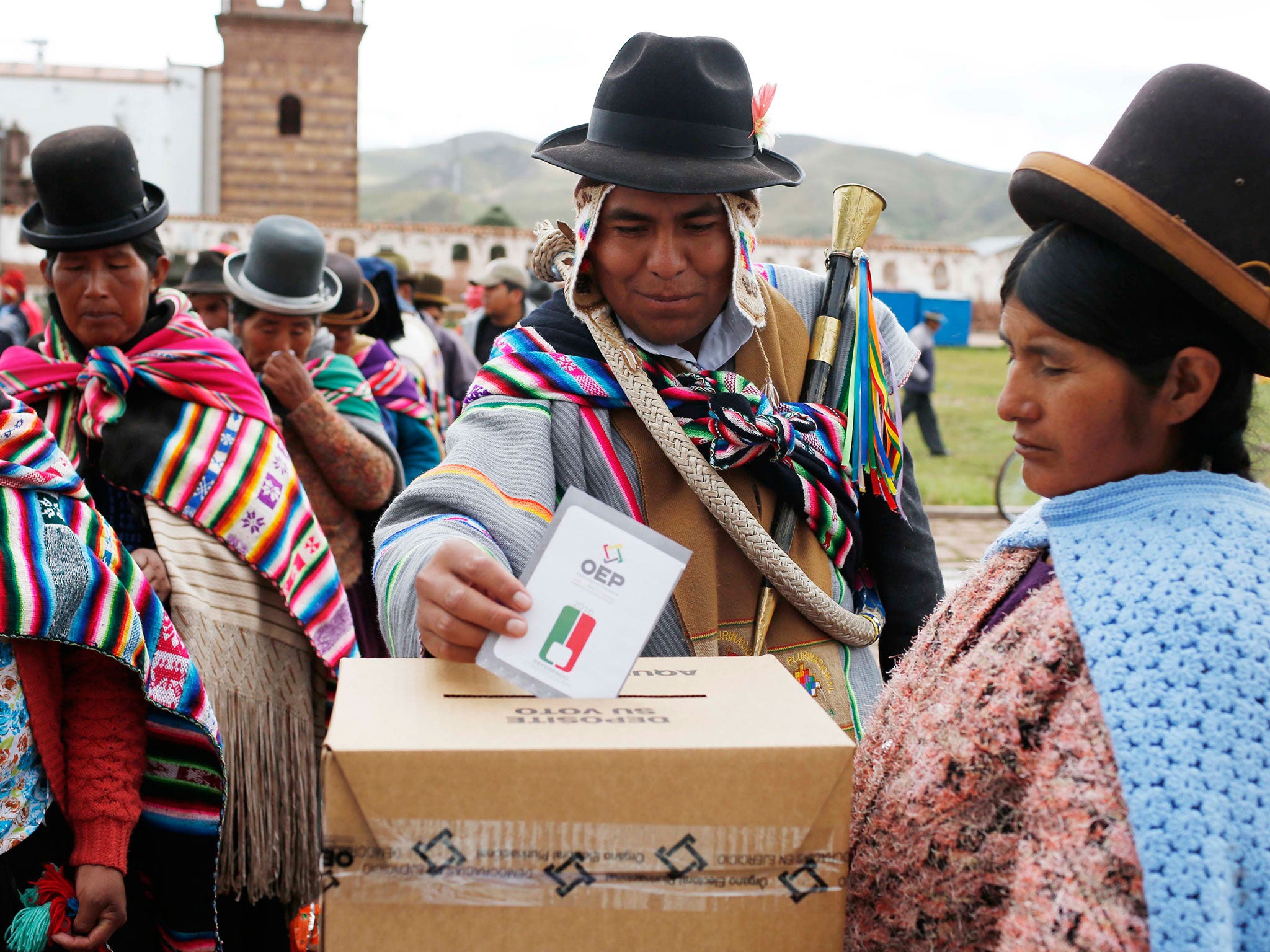Bolivia referendum overshadowed by claims of 'influence peddling' by president Evo Morales
It is claimed that Mr Morales’s ex-lover got a top job with a Chinese building firm that was given almost £300m in state contracts

Your support helps us to tell the story
From reproductive rights to climate change to Big Tech, The Independent is on the ground when the story is developing. Whether it's investigating the financials of Elon Musk's pro-Trump PAC or producing our latest documentary, 'The A Word', which shines a light on the American women fighting for reproductive rights, we know how important it is to parse out the facts from the messaging.
At such a critical moment in US history, we need reporters on the ground. Your donation allows us to keep sending journalists to speak to both sides of the story.
The Independent is trusted by Americans across the entire political spectrum. And unlike many other quality news outlets, we choose not to lock Americans out of our reporting and analysis with paywalls. We believe quality journalism should be available to everyone, paid for by those who can afford it.
Your support makes all the difference.Seemingly immune to the scandals that plagued South America’s leftist leaders, Bolivia’s first indigenous president, Evo Morales, is trying to secure a fourth term in office amid claims of “influence peddling” after an affair involving a woman who bore him a child.
Mr Morales met little serious opposition in the early years of his decade-long presidency and cut poverty as he empowered Bolivia’s long-downtrodden native majority. In 2014, he was re-elected with 60 per cent of the vote. But he faces the prospect that his current term will be his last.
Polls showed voters evenly split, with some 15 per cent undecided, in today’s referendum on whether to amend the constitution so Mr Morales can run in 2019. The potential spoiler was the claim by an opposition-aligned journalist that Mr Morales’s ex-lover got a top job with a Chinese building firm that was given almost £300m in state contracts.
Gabriela Zapata gave birth in 2007 to Mr Morales’s baby, which died. Neither she, nor the President – who is unmarried and has two children with two other women – have explained the circumstances. “I never saw her again. I did not know that she worked in that company,” Mr Morales, 56, said after this month’s claim.
A photo later emerged of him with his arm around Ms Zapata at Carnival in Oruro last year. He said it was a coincidence, and that people approach him all the time for such snaps. Another photo circulating showed Ms Zapata’s mansion in an elite area of La Paz, the administrative capital.
In 2013, Ms Zapata, 29, became general manager in Bolivia of China CAMC Engineering, which has contracts with the state including one signed last year for a £123m fertiliser plant. She has denied government influence got her the job.
Carlos Cordero, a political scientist at the Universidad Mayor de San Andrés, said the claim would affect the vote: “Combined with others it’s the worst blow yet to Mr Morales’s image of incorruptibility.”
Mr Morales presided over Bolivia’s biggest economic boom. Prices for raw materials soared just as he took office; airports, roads and La Paz’s aerial tram system were built, and a Chinese-made satellite was launched.
Political opposition and media were stifled, but Mr Morales kept confiscations of land and private firms to a minimum. Support is still strong for him among the Quechua and Aymara peoples of Bolivia’s highlands.
Results from the referendum are expected on Monday.
Join our commenting forum
Join thought-provoking conversations, follow other Independent readers and see their replies
Comments